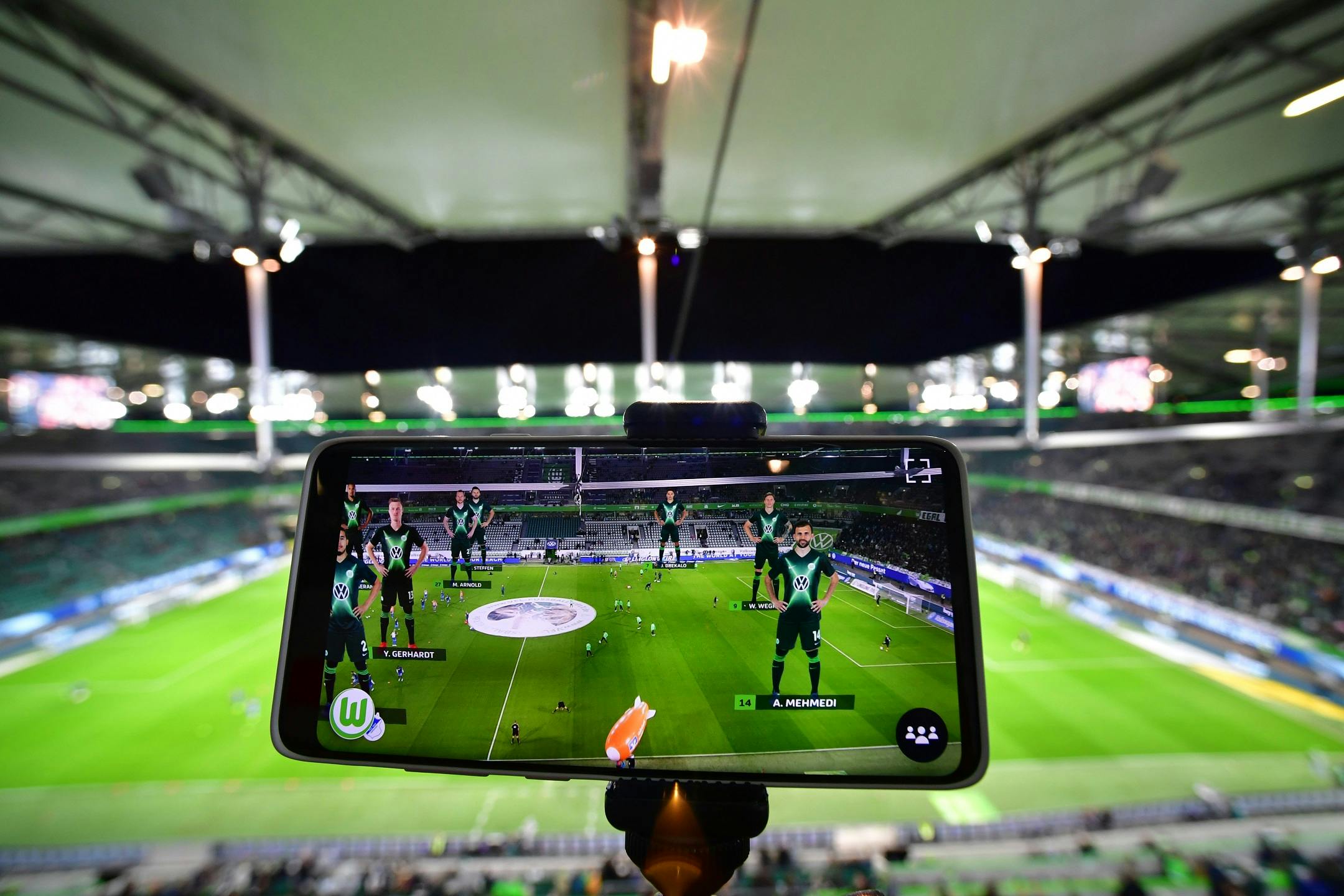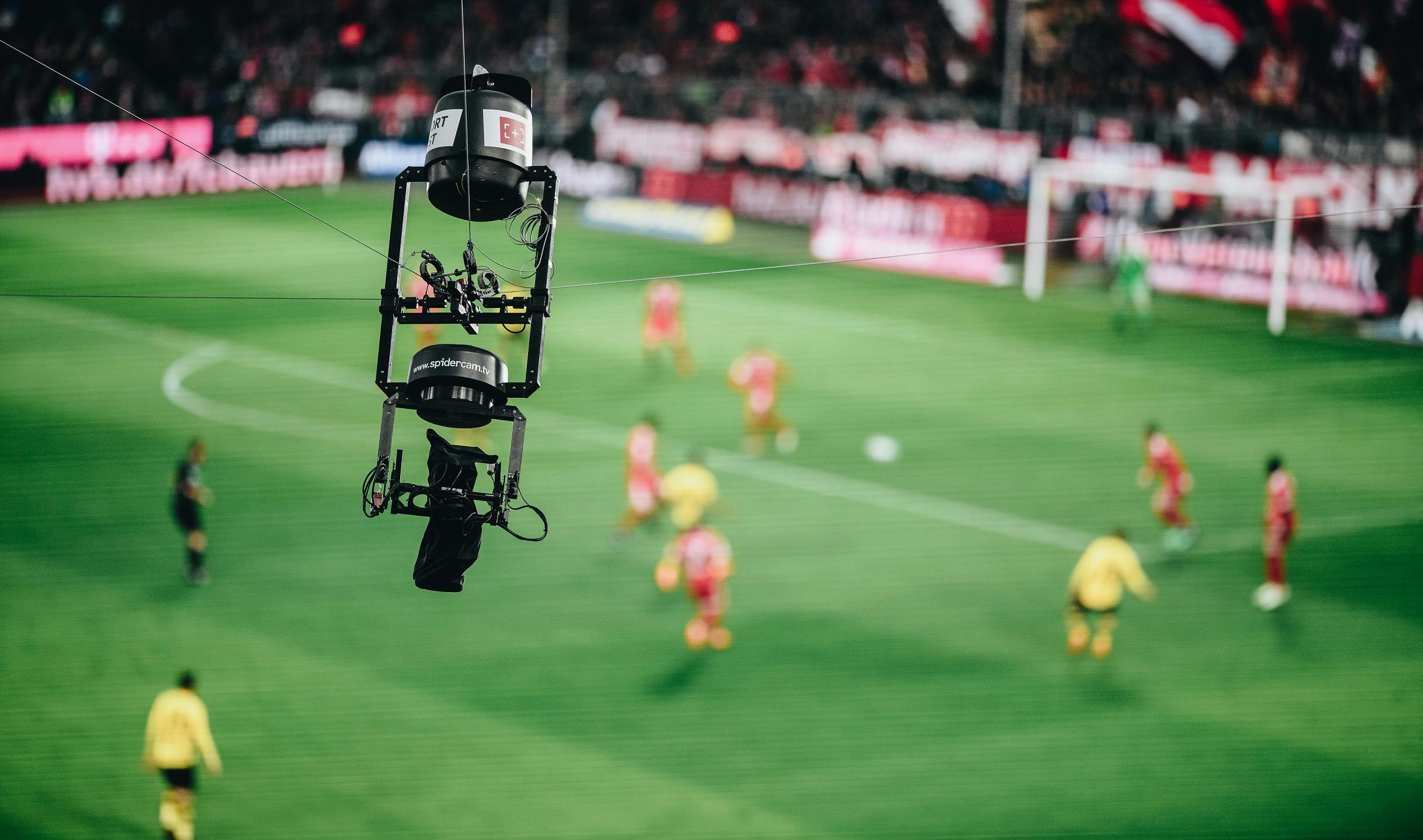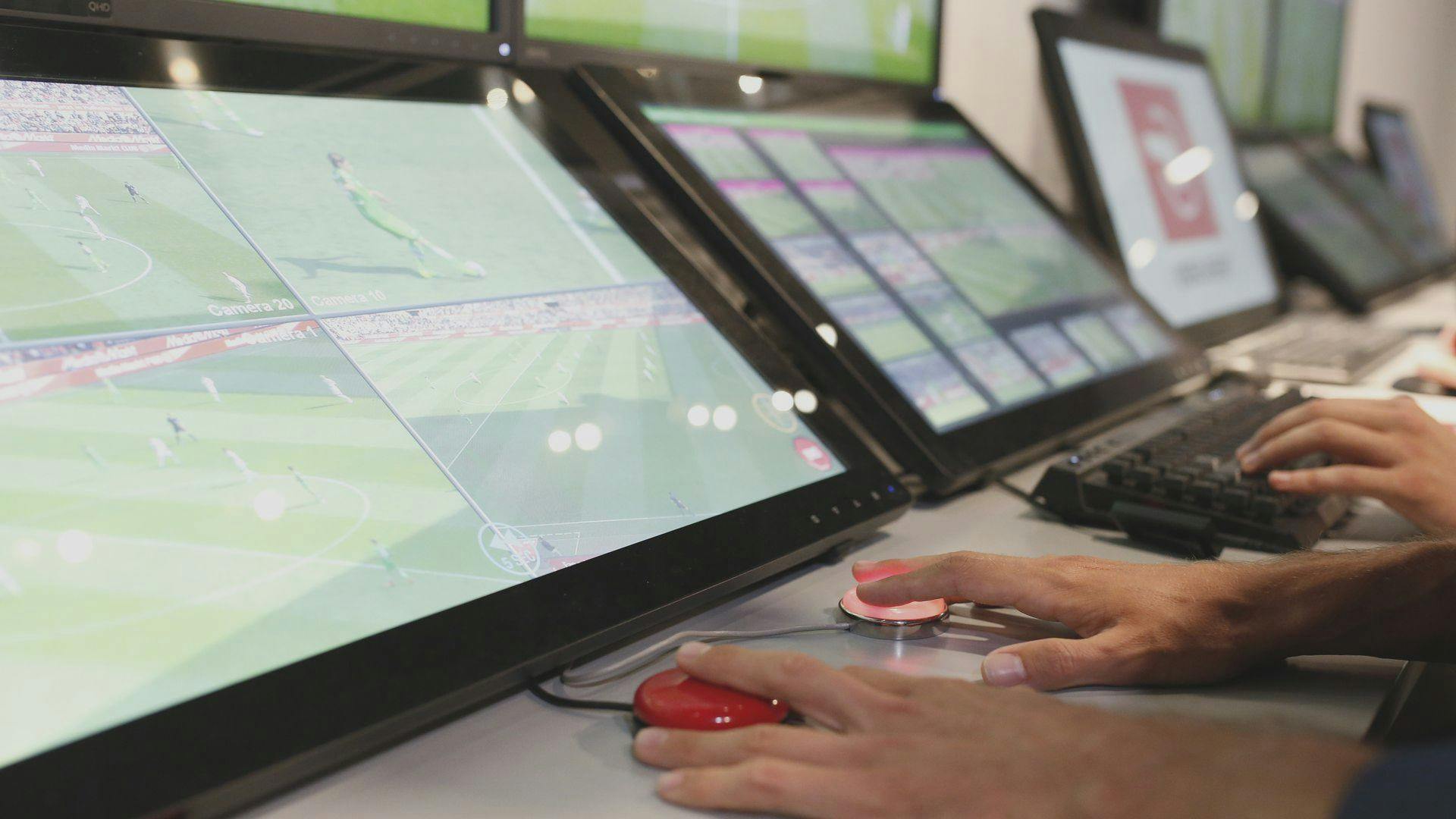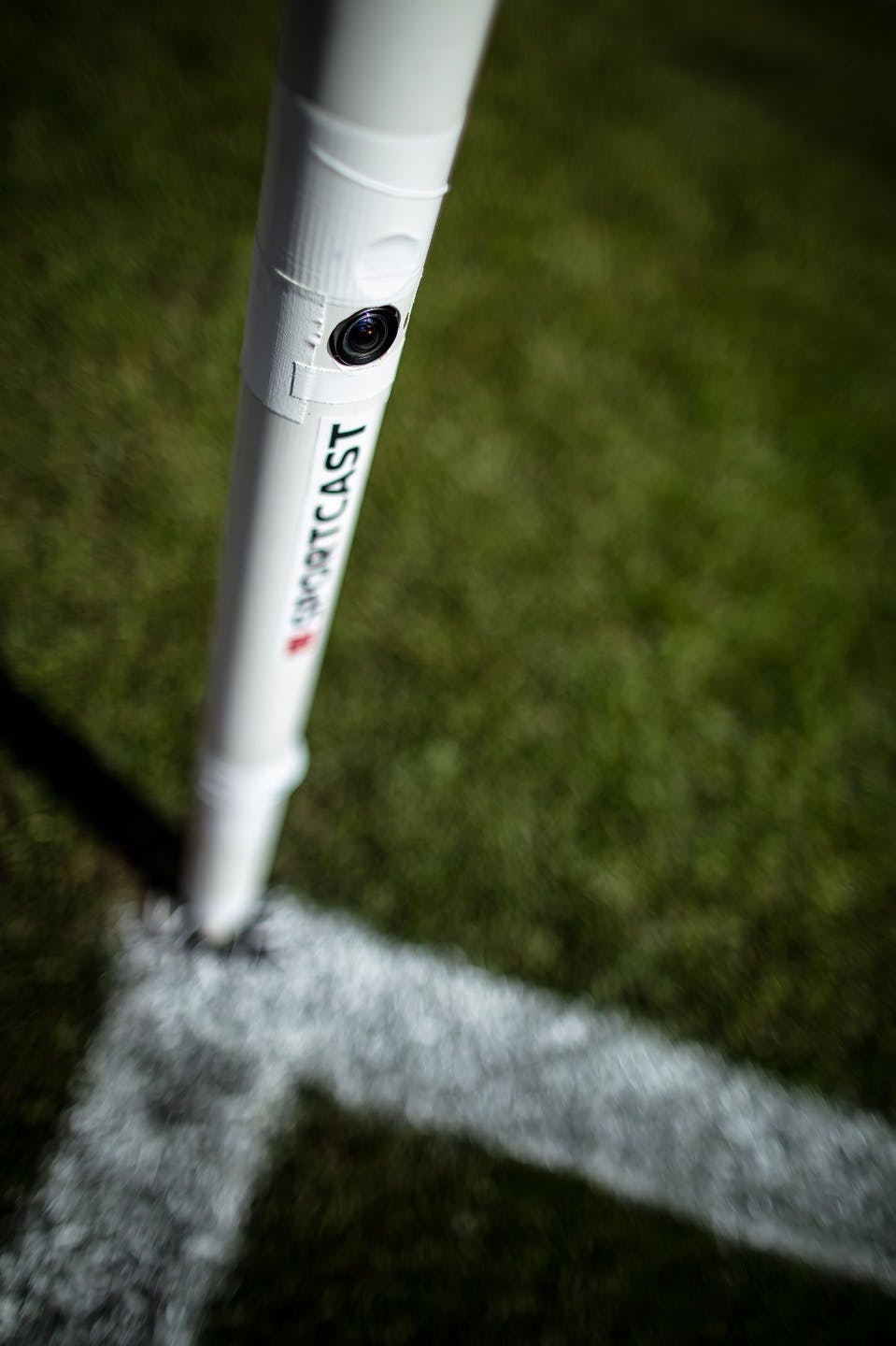The German Bundesliga has established a reputation as football’s innovation leader – one of the most forward-thinking leagues in world sport.
It is little secret that the top division in Germany attracts the largest average attendance of any football league worldwide. However, such popularity is no accident, and the Deutsche Fußball Liga (DFL), which operates the Bundesliga and 2. Bundesliga, is determined to stay one step ahead by embarking on a series of groundbreaking initiatives.
“The whole Bundesliga experience is profoundly shaped by technology,” said Andreas Heyden, DFL Group’s executive vice-president of digital innovations.
“Over time, innovations in broadcasting, datafication or adjudication of the game have made the Bundesliga more accessible and even more exciting for fans around the world. At the same time, innovations such as the introduction of goal-line technology in 2015 and Video Assistant Referee in 2017 also made the game fairer.
“This impressive development is down to DFL Digital Sports, the league’s digital content provider, our in-house broadcaster Sportcast, and Sportec Solutions, responsible for data collection and the official Bundesliga database.”

Investing in the future
Through its DFL for Equity project, the league is investing in the future. Since 2006, the DFL has been gradually expanding its influence to work across the whole media value chain – from production of the base signal for media partners through to capturing match data and the marketing of media rights.
In October 2018, the next logical step was to establish DFL for Equity, a business accelerator that has invested in novel start-ups and small and medium-sized enterprises worldwide.
By essentially drawing greater benefits from the growth of companies closely aligned with the DFL, the league is attempting to build a portfolio of investments across media, technology and sport by acquiring part or full ownership of promising companies or via collaborations with future partners.
DFL for Equity’s first partnership was struck with Israeli start-up Track160, a developer of an artificial intelligence and deep learning system, that captures the motions of players and the trajectory of the ball. Last year, a joint venture was established via DFL for Equity with Cologne-based Athletia, which provides services in relation to content, branding, analysis and rights protection.
Then, in January, the DFL acquired a stake in MOVEZ, a mobile app start-up based in Israel that is majority owned by AGT International, a global leader in the fields of AI and the Internet of Things. This year, MOVEZ will release a smartphone app – mainly aimed at children and teenagers – that will use computer vision and AI to evaluate skills in ball-related activities, such as playing football.
By bringing exclusive marketing and content assets to the investment, the DFL is demonstrating a desire to establish fruitful relationships with like-minded partners.

New level
AI and machine learning, underpinned by state-of-the-art data management, are also at the centre of a major cooperation that was announced in January when the DFL became the first football league to link up with Amazon Web Services.
As the Bundesliga’s official technology provider, the company will deliver innovations in the areas of match data acquisition and processing in order to enhance the presentation quality of the Bundesliga and 2. Bundesliga, with fans also benefiting from more personalised content.
Through the partnership, advanced statistics will be available in real time during live match coverage and highlights clips on all digital platforms, with viewers able to tailor content on the league’s digital platforms to align with their own interests thanks to AWS’s cloud infrastructure, advanced machine learning and AI technologies.
“The cooperation between the Bundesliga and AWS will take the entire fan experience to the next level,” Heyden adds. “Together, both innovation leaders in their sphere will provide advanced real-time statistics for viewers during live coverage and highlights clips from every top-tier Bundesliga match while serving personalised content across various digital platforms.
“Through machine learning and AI, we aim to use technology in a way which allows us to deliver the most relevant information to all fans anytime, anywhere and on any device. With new technologies, such as AWS’s advanced statistics, we not only report on what is happening on the pitch, but instead tell stories that excite and engage our fans.”

New realities
Pushing the boundaries of technological possibility has enabled the DFL to identify several potentially pivotal areas that will steer the development of sports coverage and consumption in the coming years.
“The Bundesliga’s focus is not only on new technologies, but rather on innovative applications that utilise technology,” Heyden says. “In the near future, there are five trends that will be especially impactful in sports: AI, 5G, extended reality (XR) – which includes mixed, virtual and augmented reality – OTT (over-the-top) and data.
“AI and 5G are base technologies to improve and enable all future high-tech capabilities. XR will profoundly change media consumption and the stadium experience, creating mixed reality environments. OTT will lead to sports broadcasts being tailored to our fans and available on demand, and of course data – the most crucial trend – will provide endless possibilities for the creation of the best football experience imaginable.”
As a starting point, the anticipated roll-out of 5G has been earmarked as a key game-changer in terms of the fan experience inside the stadium. In this regard, the DFL has been focused on being at the front of the queue. In September, the Bundesliga became the first league in the world to offer a fan engagement tool designed to take advantage of a next generation 5G network.
“Vodafone is the Bundesliga’s key partner in its forward-looking approach to change the stadium experience,” Heyden explains. “The 5G technology – powered by Vodafone – has been and will remain a key part of our innovation strategy.
“Only a few months ago, we were able to witness a world premiere in football, when real-time statistics were presented using augmented reality directly on the spectators’

smartphones via a real-time app. Through this, the Bundesliga became the first league in the world to roll out a fan engagement technology based on the next generation 5G network.
“Breakthroughs like these inspire and motivate us to keep driving our innovation efforts in the years to come.”
In keeping with its broader strategy, celebrating ‘firsts’ in areas such as 5G does not represent the end of the journey, with the DFL keen to use such technological developments as building blocks for future innovations.
“The real-time app, which is currently being developed by the DFL and Vodafone, is only a first step in utilising 5G,” Heyden says. “5G is fast enough in processing an impressive computing power and will eventually enable services such as expected goals in real-time – thanks to the power of AWS – with a profound impact on the stadium experience.
“5G will also provide fans with the opportunity to gain more knowledge, answer questions about critical decisions and bridge pauses during the game – enhancing the experience. That’s why we believe 5G will play an important role in our innovation strategy for the coming years.”
Making connections
Connecting with fans – whether they are in the stands or further afield – is an ongoing focus of the DFL, which is keen to spark interest from the next generation of followers wherever they are based.
In February, the DFL took the next step in expanding its eFootball tournaments across the world by launching the Virtual Bundesliga International Series 2020. As part of the competition, online and offline tournaments will take place in multiple countries in order to identify the top players from Asia and the Americas, with the finalists winning a trip to Germany to compete in the VBL International Final.
“Combining the online and offline world of football, the VBL International Series merges the passions of a new generation of gamers and Bundesliga fans around the world,” Heyden says. “This competition is yet another milestone in the DFL’s success story of establishing a leading global esports competition, an asset that further confirms the Bundesliga’s reputation as football’s innovation leader.”
To consolidate its role, the DFL is also hosting the second edition of its SportsInnovation conference on March 25-26 in Düsseldorf, following its successful debut in 2018. The event has been billed as a trade fair bringing together established companies and start-ups to present the latest technologies and innovative trends in sports technology.
“Together with Messe Düsseldorf we aim to showcase the most exciting technologies in the sports industry, share experiences and learn from one another,” Heyden adds.
“SportsInnovation is a cornerstone in the Bundesliga’s efforts to bridge technology and sports and is crucial for the Bundesliga’s position as an innovation leader. At the same time, it provides the basis for new and exciting adaptions of the game and allows a glimpse into the future of football.”
Whether it is through DFL for Equity, collaborations, or initiating industry gatherings, the Bundesliga is set to remain a hotbed of innovation for years to come.